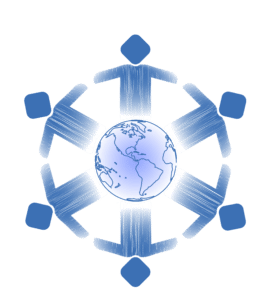Addiction Training for Health Professionals – Our Mission.
Physicians play an important role in developing and providing effective prevention and treatment methods for addictive disorders. The United Nations Office on Drugs and Crime released in its 2020 annual report that more than 35 million people suffer from drug addiction worldwide; this underscores that the need to provide medical professionals and students with education and clinical experience in addiction is more pressing than ever before. Moreover, the U.S. Department of Health and Human Services acknowledged in 2017 that there is a gaping shortage of medical addiction specialists as a result of limited educational resources, inadequate support, and uneven geographic distribution.

The inadequacy of medical support for addiction and substance abuse sufferers has numerous impacts that step far beyond the individual level, reaching all levels of society. The U.S. Department of Justice compiled National Drug Threat Assessments (2010 and 2020), in which they highlighted that the issue of addiction and substance abuse negatively affects societal productivity due to drug use-related unemployment and chronic absenteeism. Additionally, they recognized that substance abuse and addiction profoundly impact the family members and colleagues of these patients and adversely affect their mental and physical health, and prevent individual stability.
The Addiction Training for Health Professionals (ATHP) program strives to increase the number of healthcare professionals specializing in addiction medicine and maximize the number of healthcare providers in all settings who are trained to competently and compassionately assess, prevent, and treat addictive diseases. We offer training both directly and through our institutional partners, teaching physicians and other providers in training and practice how to assess, treat, and refer patients with substance use disorders. ATHP aims to contribute to the solution of addiction and substance use by going further than one-dimensional education. The Program encourages healthcare professionals to understand that their own substance use habits influence their patient care, allowing them to improve their personal and clinical substance-related practices resultantly. The approach is to reduce stigma related to substance use disorders so that healthcare providers are more willing and better able to assess, prevent, and treat addictive diseases.

The ATHP program supports addiction education by providing materials for free that can be implemented in addiction medicine fellowship programs, residency programs, medical schools, public health programs, and concentrations for Master’s programs in Public Health. The educational courses can also be used by physicians and other healthcare professionals pursuing the practice pathway to sub-specializing in Addiction Medicine and as continuing professional development for practicing physicians and other providers.
Alixandria Ali
Author
References
General, O. O. T. S. & Human Services, U.S. Department of Health and. (2017). Facing
Addiction in America: The Surgeon General’s Report on Alcohol, Drugs, and Health. CreateSpace Independent Publishing Platform.
Impact of Drugs on Society – National Drug Threat Assessment 2010 (UNCLASSIFIED). (n.d.). Retrieved October 28, 2022, from https://www.justice.gov/archive/ndic/pubs38/38661/drugImpact.htm
United Nations & United Nations. (2021). World Drug Report 2020. UN.
U.S Department of Justice, Drug Enforcement Administration. (2021). 2020 National Drug Threat Assessment [Pdf]. Drug Enforcement Administration, Strategic Intelligence Section.

